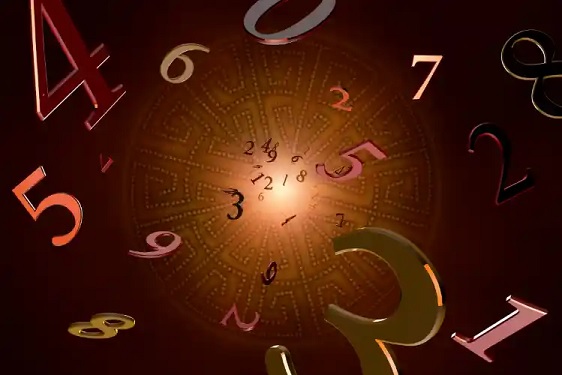 “You can’t stop the waves, but you can learn to surf.” ~Jon Kabat- Zinn Over the years I’ve talked to a lot of people about that one love, the one who got away, the one who it didn’t work out with, the one with whom the timing was bad. I’ve had these conversations with people from all age groups, including people in their seventies. I’ve had my own journey with all of the above as I traveled toward finding a life partner. It seems whether you stay together or not you’ll likely be in each other’s minds for quite some time in the form of thoughts, memories, or dreams. If you’re lucky they’ll be sweet, but sometimes they’re sad, hurt, confused, or angry dreams.
“You can’t stop the waves, but you can learn to surf.” ~Jon Kabat- Zinn Over the years I’ve talked to a lot of people about that one love, the one who got away, the one who it didn’t work out with, the one with whom the timing was bad. I’ve had these conversations with people from all age groups, including people in their seventies. I’ve had my own journey with all of the above as I traveled toward finding a life partner. It seems whether you stay together or not you’ll likely be in each other’s minds for quite some time in the form of thoughts, memories, or dreams. If you’re lucky they’ll be sweet, but sometimes they’re sad, hurt, confused, or angry dreams.
Some people really struggle with this. They want their ex-lovers out of their heads forever, relegated to a dark and distant part of their minds.
It’s as though they want them stored away in a box in their mind that they never have to open again. And I get it. Who wouldn’t want to be able to mentally exorcise a person who is associated with a painful and confusing time of your life?
Some people are frightened or confused by the thoughts, memories, and dreams that occur, as they think remembering on old relationship means they’ve made a mistake in their current partner choice or that they haven’t moved on.
In my case, I had daily thoughts about a couple of old relationships for about eighteen years. Yes, you read correctly, eighteen years. The thoughts would often take the form of self-recrimination or sense-making. “Why did that happen? Why did I do that? Why did I put up with that for so long? Why did I go back to him?” Essentially, these thoughts seemed to be focused on the question “What was wrong with me?” Others would be about an ex and all his decisions and choices—essentially asking “What was wrong with him?” Some thoughts would be re-doing the past—how I could have handled it, what I should have done, what could I have done better.
Sometimes they would just be memories, triggered by going to certain places or someone asking, “Have you ever been here, done that,” etc. Sometimes my mind would wonder what it would be like if it the relationship had worked out. I’ve generally been accepting of thoughts, memories, or dreams of past relationships popping into my head. I’ve never seen it as a sign of not being ready to be with someone else, and rarely have I tried to get rid of the memories. Mostly I think it’s because I accepted that this is what minds do when something major happens.
Getting vulnerable, intimate, and allowing yourself to form an attachment to someone is a major event for your mind. When it doesn’t work out, your mind interprets it as threatening.
Your mind recognizes the hurt feelings associated with a breakup as a threat and then starts a plan to protect you from ever experiencing such a hurt again. So it throws it thoughts, memories, and dreams at you from time to time—in part to help you process the relationship but also to remind you to be careful to not get in the same situation again, in order to protect you from hurt.
Also, minds tend to believe that by thinking and worrying they can make sense or find a solution to the breakup, the “what went wrong” of it all. Again, the mind is always looking for the facts to protect you in the future. Sometimes it’s helpful, sometimes it’s just seems annoying and repetitive.
What can you do to handle thoughts and dreams about past relationships?
1. Accept that it is normal and natural to have thoughts, memories, and dreams about your exes.
Don’t read too much into it. Just see it as what minds do.
2. Avoid acting on thoughts, dreams, and impulses associated with exes.
Don’t call, message, or make a decision to get back together based on random thoughts or dreams. This is probably not a sign; it’s just your mind doing what minds do.
3. If you feel strong emotion with the thoughts, memories, or dreams, write it down.
Writing it down allows us to take one step back and defuses the emotion somewhat. Then engage yourself in something fun or interesting. Get busy.
4. Know that eventually you will think less and less about it.
In the acute stage of a breakup you almost can’t stop thinking about the relationship, but over time the thoughts become less prominent and less painful. Trust that this will continue to happen over time. This will happen more quickly if you don’t engage regularly with your ex. Let the distance help you disengage.
5. Avoid punishing yourself with self-critical thoughts.
Like “how could I not see that, I’m stupid,” etc. Remind yourself that it is normal to want to be loved.
6. Reflect on the positives the relationship gave you.
All relationships teach you something. Remind yourself it was not a waste of time; it was just time, it was just part of your story.
One of my significant relationships ended with a great deal of hurt because of cheating and lies, but I don’t regret it. I learned a lot in that experience—life lessons that I keep with me even today. For example, I learned that I could survive betrayal and the emptiness that comes with the loss of love—that the pain lessens in time. I learned that when the cost is too great, you must let go of love, even if a part of you may not want to. And I learned that in addition to love and attraction, you need to have have shared values. Still, knowing that I’ve learned from all my relationships doesn’t make it any easier to stop thinking about them. For example, I spent quite a bit of time wondering why someone said, in breaking up with me, that he needed to spend more time with his dog. (Yes, that really did happen.) That memory came with a special combination of disbelief and hurt for some time. These days I think that story is kind of funny in a “was that the best you could come up with?” kind of a way.
These thoughts, amongst others, are now faded memories that I take with me in life, the good and the bad. I see them each as just another chapter in my story. They are part of me, but they don’t define me.
Some relationships endings are particularly painful. If you are significantly troubled by an old relationship—if you have difficulty disengaging from an ex-partner or have been affected by serious relationship trauma such as domestic violence—it’s a good idea to see a psychologist or relationship counselor to help you work through the letting go and moving forward.
No matter how hard your breakup, one day it will be just another chapter in your story too.
![]() Nadene van der Linden is a clinical psychologist in private practice in Perth, Australia.
Nadene van der Linden is a clinical psychologist in private practice in Perth, Australia.
This post was republished with permission from tinybuddha.com. You can find the original post here





